World Geography And Politics Daily News | 14 Jul 2023

Views (111)
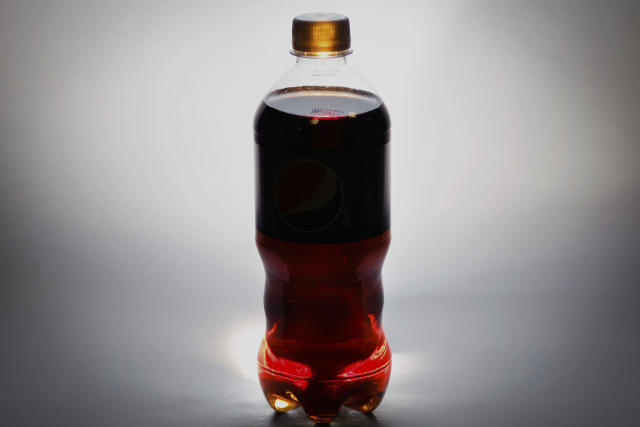
Syria says UN can deliver aid through shuttered Turkish crossing for six months
UNITED NATIONS (Reuters) -The Syrian government on Thursday said the United Nations could use a border crossing from Turkey to continue delivering aid to northwest Syria for another six months after the Security Council failed to renew its authorization for the operation. The U.N. aid deliveries would have to be "in full cooperation and coordination with the Syrian Government", Syria's U.N. Ambassador Bassam Sabbagh wrote in a letter on Thursday to the Security Council, seen by Reuters.
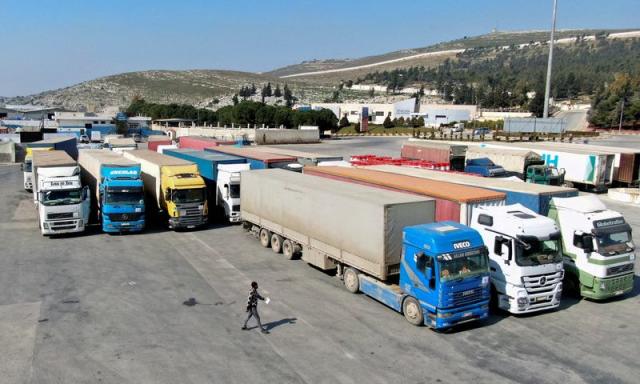
By Michelle Nichols
UNITED NATIONS (Reuters) -The Syrian government on Thursday said the United Nations could use a border crossing from Turkey to continue delivering aid to northwest Syria for another six months after the Security Council failed to renew its authorization for the operation.
The U.N. aid deliveries would have to be "in full cooperation and coordination with the Syrian Government", Syria's U.N. Ambassador Bassam Sabbagh wrote in a letter on Thursday to the Security Council, seen by Reuters.
U.N. Security Council approval for the Turkish-based aid operation delivering help to several million people in rebel-held northwest Syria expired on Monday as members struggled to convince Russia to extend it for more than six months.
Russia vetoed a nine-month authorization renewal at the U.N. Security Council on Tuesday and then failed in its own bid for a six-month extension of the operation, which has been delivering aid including food, medicine and shelter since 2014.
U.N. Secretary-General Antonio Guterres had pushed for a 12-month renewal. U.N. spokesman Stephane Dujarric said the Syrian letter had been received and the United Nations was studying it.
"Under the U.N. mandate, Bab al-Hawa had gold standard aid monitoring, to ensure aid was not misused," British U.N. Ambassador Barbara Woodward said in a statement.
"Without U.N. monitoring, control of this critical lifeline has been handed to the man responsible for the Syrian people's suffering," she said, in a reference to Syrian President Bashar al-Assad.
She said the priority was to quickly get aid flowing again to those who need it and then, certainty over the operation's future, adding: "We will not hesitate to bring this back to the Security Council."
Security Council authorization was needed because the Syrian government did not agree to the U.N. operation. It initially authorized aid deliveries in 2014 into opposition-held areas of Syria from Iraq, Jordan and two points in Turkey. But Russia and China whittled that down to just one from Turkey: Bab al-Hawa.
COUNCIL AVENUE 'DEAD'
Russia's Deputy U.N. Ambassador Dmitry Polyanskiy said there was now no need for the council to vote on any authorization for cross-border aid deliveries and that avenue was "officially dead" now that the Syrian government had given its own approval.
"Every effort to put another draft to vote will constitute nothing but political games," he posted on Twitter.
Russia and Syria have argued that the operation violates Syria's sovereignty and territorial integrity. They say more aid should be delivered from inside the country, raising opposition fears food and other aid would fall under government control.
"The Government of the Syrian Arab Republic has taken the sovereign decision to grant the United Nations and its specialized agencies permission to use Bab al-Hawa crossing," Sabbagh wrote.
They would be allowed "to deliver humanitarian aid to civilians in need in northwest Syria, in full cooperation and coordination with the Syrian Government, for a period of six months, starting from July 13, 2023," he said.
After an earthquake killed more than 50,000 people in Turkey and Syria in February, Assad allowed the United Nations to use an additional two border crossings from Turkey to dispatch aid. That approval expires on Aug. 13.
A violent crackdown by Assad on peaceful pro-democracy protesters in 2011 led to a civil war, with Moscow backing Assad and Washington supporting the opposition. Millions of people have fled Syria with millions more internally displaced. Fighting has since abated with Assad back in control of most of Syria.
(Reporting by Michelle Nichols; editing by Kanishka Singh and Deepa Babington)
Guatemala's political turmoil deepens as 1 candidate is targeted and the other suspends her campaign
Guatemala sank deeper into political turmoil Thursday as an effort by prosecutors to discredit a progressive presidential candidate prompted his conservative opponent to suspend her campaign, citing a playing field that was no longer even. The government's actions against candidate Bernardo Arévalo — first suspending his Seed Movement party, then raiding the country's election tribunal offices after it certified election results — sparked other objections as well, from within and outside Guatemala. The Constitutional Court, which is Guatemala's highest tribunal, granted a preliminary injunction to the Seed Movement, blocking its suspension.
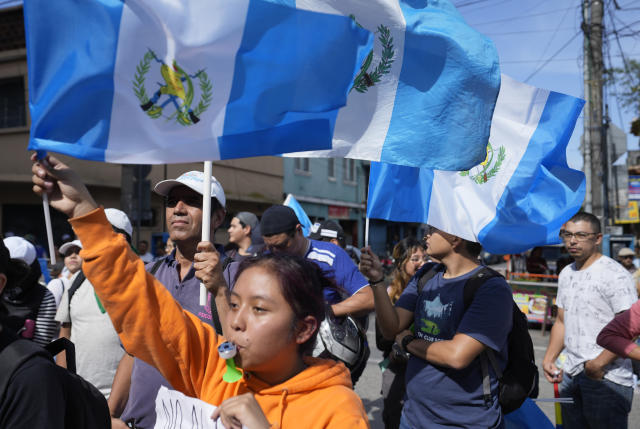
The government's actions against candidate Bernardo Arévalo — first suspending his Seed Movement party, then raiding the country's election tribunal offices after it certified election results — sparked other objections as well, from within and outside Guatemala. U.S. officials called them a threat to the country’s democracy.
By Thursday afternoon, those actions appeared to have backfired.
The Constitutional Court, which is Guatemala's highest tribunal, granted a preliminary injunction to the Seed Movement, blocking its suspension. Meanwhile, candidates left and right warned the government to let the voters prevail.
It was an outcome President Alejandro Giammattei likely did not expect when his administration decided to intervene in the June 25 election, which ended with Arévalo and conservative candidate Sandra Torres moving on to an Aug. 20 presidential runoff.
Arévalo dismissed the government's actions as illegal and said he would file complaints against the lower court judge, attorney general and special prosecutor for trying to keep him out of the race.
“What they are trying to do is simply sow doubt about our honesty,” he said at a news conference Thursday, adding that the raid and party’s suspension had a “clear political purpose.”
The Supreme Electoral Tribunal issued an angry statement declaring it would safeguard Guatemala’s democracy in the face of “any attempt to interfere with the electoral process.”
Torres, whose UNE party has been a key force in allowing Giammattei to advance his legislative agenda, said she was halting her campaign activities to protest the government's actions. It was likely she realized Giammattei’s missteps could sink her own candidacy.
“We want to demonstrate our solidarity with the voters of the Seed party and also with those who came out to vote,” she said. “As a candidate, I want to compete under equal conditions.”
She called on the president to show his face.
Giammattei’s office issued a statement saying it respects the separation of powers and would not be involved in any judicial processes. Giammattei is prohibited by Guatemalan law from seeking reelection.
A former diplomat and academic, Arévalo has framed himself as the candidate who would bring change to the country, while portraying Torres as someone who would likely maintain the status quo.
Arévalo also promised to bring back prosecutors and judges who were critical to the nation's fight against corruption but were forced out of the country under Giammattei’s administration.
Then late Wednesday, anti-corruption prosecutor Rafael Curruchiche announced the Seed Movement's suspension, an action that appeared to violate Guatemala's election laws, which prohibit suspending parties during an ongoing election. Curruchiche alleged the party violated the law while gathering the signatures it needed to form.
The day began Thursday with prosecutors raiding the offices of the Supreme Electoral Tribunal just hours after it certified the election results. The Attorney General’s Office said Thursday that the purpose of the raid was to seize evidence from the office responsible for voter rolls and party registration. A raid had also been expected to take place at the Seed Movement’s party headquarters Thursday but that appeared unlikely after the high court's injunction.
Department spokesman Matthew Miller said Thursday that the U.S. government was “deeply concerned” by the actions of the Attorney General’s Office, which he said threatened the legitimacy of the electoral process. “The will of the Guatemalan people, as expressed through the June 25 elections results, must be respected,” he said.
A United Nations spokesperson said Secretary-General Antonio Guterres was watching developments in Guatemala with concern and urged all those involved to act responsibly and impartially.
Katya Salazar, executive director of the Due Process Foundation, a Washington-based nongovernmental group, said events playing out in Guatemala were the result of real fear among those in power that an Arévalo victory could threaten the impunity they enjoy.
That impunity comes from co-optation of the justice system, by appointing judges and an attorney general they trusted and chasing those in the justice system who had investigated corruption out of the country, she said.
“If you don’t control the justice system, there is always going to be the concern that they open an investigation against you,” she said.
On Thursday afternoon, several hundred people gathered outside the Attorney General’s Office to protest attempts to suspend the Seed Movement.
Rosmarie Móvil, a 76-year-old vendor, said she came because she was tired of the government trampling the people’s will.
“What we want to say more than anything is no to corruption, enough already,” she said. “It makes you embarrassed to be Guatemalan because they steal from us, there’s no justice, there’s no health (care) and on top of it they want to take the democracy. Let there be spring now.”
___
Associated Press writers Christopher Sherman in Mexico City and Edith M. Lederer in New York and AP Diplomatic Writer Matthew Lee in Washington contributed to this report.
Putin tells newspaper he offered Wagner fighters chance to keep serving
Putin, interviewed by the Russian daily Kommersant, said this was one of several offers he made at a meeting with around three dozen fighters and their founder Yevgeny Prigozhin late last month, five days after Wagner staged the abortive revolt against Russia's military hierarchy. Putin also said it was up to Russia's government and parliament to work out a legal framework for private military formations.
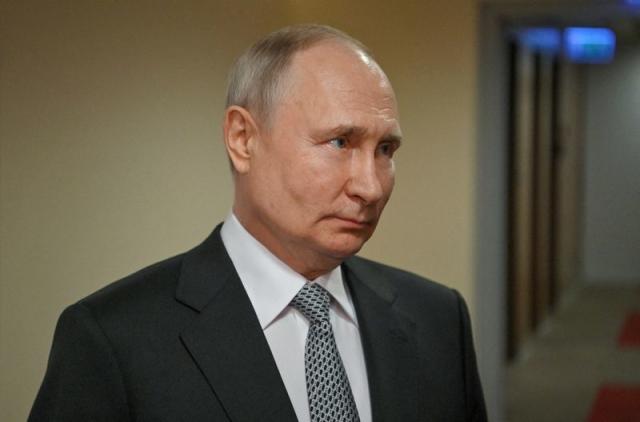
(Reuters) - Russian President Vladimir Putin offered mercenary fighters with the Wagner group the opportunity to remain serving together in Russia after their revolt, he said in an interview published late on Thursday.
Putin, interviewed by the Russian daily Kommersant, said this was one of several offers he made at a meeting with around three dozen fighters and their founder Yevgeny Prigozhin late last month, five days after Wagner staged the abortive revolt against Russia's military hierarchy.
Under the offer, the fighters would stay under their current commander, who the newspaper identified only by his call sign of "Grey Hair."
Putin also said it was up to Russia's government and parliament to work out a legal framework for private military formations.
Kommersant said Putin spoke of meeting 35 Wagner fighters and Prigozhin in the Kremlin and offering them options for the future, including remaining under their commander of 16 months.
"All of them could have gathered in one place and continued their service," Kommersant quoted the president as saying. "And nothing would have changed. They would have been led by the same person who had been their real commander all that time."
As Putin is the army's commander-in-chief, he seemed to be implying that they would remain within the Russian military, although he did not say that explicitly.
"Many of then nodded when I said this," Kommersant quoted Putin as saying.
However, Prigozhin disagreed, it reported.
"Prigozhin ... said after listening: 'No, the boys won't agree with such a decision," Kommersant quoted Putin as saying.
Wagner fighters played a key role in the Russian army's advance into eastern Ukraine and were the driving force in the capture in May of the city of Bakhmut after months of battles.
But Prigozhin constantly accused the military of failing to back his men and Wagner fighters unhappy with the Defence Ministry's conduct of the war took control of the southern city of Rostov-on-Don on June 23 and began moving towards Moscow.
They halted their advance the next day after being offered a deal under which they could resettle in Belarus, along with Prigozhin. Any notion of pressing charges against Prigozhin was dropped.
Putin told the newspaper there was no possibility of Wagner remaining in its current form.
"Wagner does not exist," Putin told Kommersant. "There is no law on private military organisations. It just doesn't exist."
(Reporting by Ron Popeski and Nick Starkov, Editing by Rosalba O'Brien)
Putin on Ukraine’s accession to NATO: Nothing good, this will not increase Kyiv's security
Russian President Vladimir Putin has said that Ukraine's potential entry into the North Atlantic Alliance poses threats to Russia's security and will not help Kyiv. Source: Putin in an interview broadcast by the Russia 24 TV channel, as European Pravda quotes Details: Putin decided to comment on the decision of the NATO summit held in Vilnius on 11-12 July, and once again repeated theses about the threats of Ukraine's future accession to the Alliance.

Russian President Vladimir Putin has said that Ukraine's potential entry into the North Atlantic Alliance poses threats to Russia's security and will not help Kyiv.
Details: Putin decided to comment on the decision of the NATO summit held in Vilnius on 11-12 July, and once again repeated theses about the threats of Ukraine's future accession to the Alliance.
According to Putin, the threat of Ukraine joining NATO was one of the reasons for the war he started.
Quote: "We have repeatedly said this: this poses threats to Russia's security, obviously…
I am sure that this will not increase the security of Ukraine itself. And in general, this will make the world much more vulnerable and lead to additional tension in the international arena.
Therefore, I do not see anything good in this; our positions are well known and have been formulated long ago."
Details: Regarding the security agreements that Ukraine has made with the leaders of the Group of Seven on the sidelines of the Vilnius summit, Putin said that all states have the right to ensure security as they see fit, but not at the expense of the security of others.
Quote: "There is only one limitation. It is connected with the fact that, while achieving the security of one country, there should be no threats created for another country."
No-deal Brexit planning made UK ‘more match fit’ to respond to Covid, says Michael Gove
Planning for no-deal Brexit made the UK “more match fit” to respond to the Covid pandemic, Michael Gove has said.
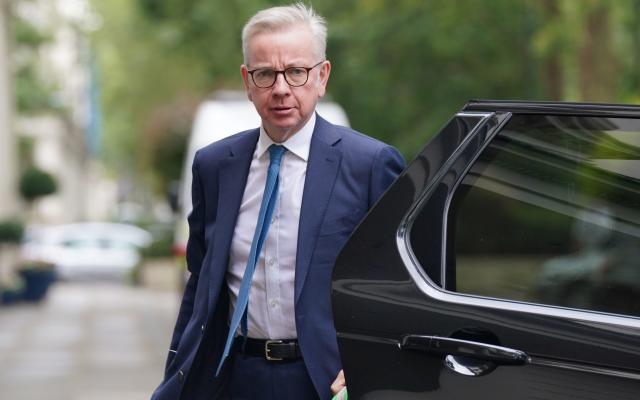
The veteran Tory, who is now the Levelling Up Secretary, was questioned by the inquiry over his previous roles and pandemic planning.
He said the Civil Service expanded in readiness for departing the EU after being asked by Kate Blackwell KC, counsel to the inquiry, whether staff were overworked.
“The nature, the pace and the intensity of the work undoubtedly placed pressure on individuals and the system, but it also ensured a greater degree of match fitness for what none of us anticipated but what was to come the year after,” said Mr Gove.
“I would argue that the skills acquired, honed and refined during EU exit preparation helped us not only to have an organisational system that was better in dealing with the crisis, but also having a cadre of people who’d been through an intense process that enhanced their ability to respond.
“The preparation for EU exit in and of itself was some of the best preparation that could have been undergone for any future crisis.”
The Exit Operations committee had to work at an “accelerated” tempo because of the EU exit deadline, he said.
“I do believe that it was helpful for all of government to be operating at that pace, because we made government more match fit overall for the terrible events that this inquiry has been set up to look at,” he added.
Asked whether workforce capacity issues resulting from moving staff over to prepare for a no-deal Brexit had a detrimental effect on pandemic planning, Mr Gove said: “No, because I haven’t yet seen any activity that has been identified that would have enabled us to significantly better deal [with the pandemic].”
The MP for Surrey Heath added that the Cabinet Office “did flex rapidly once it was clear what the scale of the pandemic was” in the spring of 2020.
The inquiry continues next week, when the first of six modules will come to an end.
Soda sweetener aspartame now listed as possible cancer cause. But it's still considered safe
The World Health Organization's cancer agency has deemed the sweetener aspartame — found in diet soda and countless other foods — as a “possible” cause of cancer, while a separate expert group looking at the same evidence said it still considers the sugar substitute safe in limited quantities. One came from the International Agency for Research on Cancer, a special branch of the WHO. The other report was from an expert panel selected by WHO and another U.N. group, the Food and Agriculture Organization.
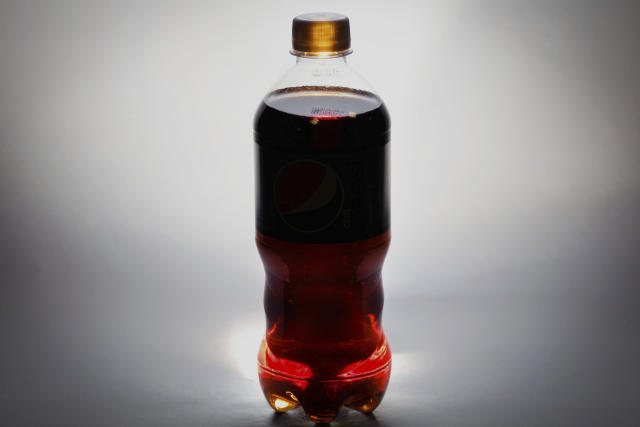
The World Health Organization's cancer agency has deemed the sweetener aspartame — found in diet soda and countless other foods — as a “possible” cause of cancer, while a separate expert group looking at the same evidence said it still considers the sugar substitute safe in limited quantities.
The differing results of the coordinated reviews were released early Friday. One came from the International Agency for Research on Cancer, a special branch of the WHO. The other report was from an expert panel selected by WHO and another U.N. group, the Food and Agriculture Organization.
The Lyon, France-based cancer agency periodically reviews potential cancer hazards, but doesn't determine how likely they are to cause cancer in their evaluations which range from “possibly” carcinogenic to “probably” to cancer-causing.
Aspartame joins a category with more than 300 other possible cancer-causing agents, including things like aloe vera extract, Asian-style pickled vegetables and carpentry work.
The guidance on use of the sweetener, though, isn’t changing.
“We’re not advising consumers to stop consuming (aspartame) altogether,” said WHO’s nutrition director Dr. Francesco Branca. “We’re just advising a bit of moderation.”
Here's a look at the announcement:
WHAT IS ASPARTAME?
Aspartame is a low-calorie artificial sweetener that is about 200 times sweeter than sugar. It is a white, odorless powder and the world’s most widely used artificial sweetener.
Aspartame is authorized as a food additive in Europe and the U.S. and is used in numerous foods, drinks such as Diet Coke, desserts, chewing gum, medications including cough drops and foods intended to help with weight loss. It's in tabletop sweeteners sold as Equal, Sugar Twin and NutraSweet.
U.N. experts evaluated the safety of aspartame in 1981 and set the safe daily limit slightly lower, at 40 milligrams of aspartame per kilogram.
David Spiegelhalter, an emeritus statistics professor at Cambridge University, said the guidance means that “average people are safe to drink up to 14 cans of diet drink a day … and even this ‘acceptable daily limit’ has a large built-in safety factor.”
WHAT DID THE TWO GROUPS SAY?
WHO's cancer agency, IARC, convened its expert group in June to assess the potential of aspartame to cause cancer. It based its conclusion that aspartame is “possibly carcinogenic” on studies in humans and animals that found “limited” evidence that the compound may be linked to liver cancer.
In a separate evaluation, experts assembled by WHO and the food agency updated their risk assessment, including reviewing the acceptable daily intake. They concluded there was “no convincing evidence” at the currently consumed levels that aspartame is dangerous; their guidelines regarding acceptable levels of consumption were unchanged.
SHOULD I BE CONCERNED ABOUT GETTING TOO MUCH?
Not as long as you don’t exceed the guidelines. The FDA said scientific evidence continues to support the agency's conclusion that aspartame is “safe for the general population,” when used within limits.
Almost any substance can be dangerous in excessive amounts, said David Klurfeld, a nutrition expert at the Indiana University School of Public Health-Bloomington.
“The dose makes the poison,” said Klurfeld, who previously served on an IARC panel. “Even essential nutrients like vitamin A, iron and water will kill you within hours if too much is consumed.”
SO WHAT SHOULD CONSUMERS DO?
WHO’s Branca said it was acceptable for people to consume a “pretty large” amount of aspartame without suffering any ill effects. “High consumers" might want to cut back, he said.
Dr. Peter Lurie, executive director of the Center for Science in the Public Interest, which previously nominated aspartame for IARC review, said there’s an easy choice for consumers.
“At least when it comes to beverages, our message is your best choice is to drink water or an unsweetened beverage,” he said.
Most people, though, probably don’t pay much attention to IARC evaluations. The agency has previously classified processed meat like hot dogs and bacon as cancer-causing, noting in particular its link to colon cancer. That move surprised even others in the scientific community — the U.K.’s biggest cancer charity reassured Britons that eating a bacon sandwich every so often wouldn’t do them much harm.
WHAT DOES THIS MEAN FOR THE FOOD AND BEVERAGE INDUSTRY?
Food and beverage producers say there’s no reason to avoid products with aspartame.
“There is a broad consensus in the scientific and regulatory community that aspartame is safe," the American Beverage Association said in a statement.
WHO's Branca said the agency advises food manufacturers in general to “use ingredients that do not require the addition of too much sugar.” After the latest assessments of aspartame, Branca said that using sweeteners “is probably not the way forward.”
___
The Associated Press Health and Science Department receives support from the Howard Hughes Medical Institute’s Science and Educational Media Group. The AP is solely responsible for all content.
0 Likes
